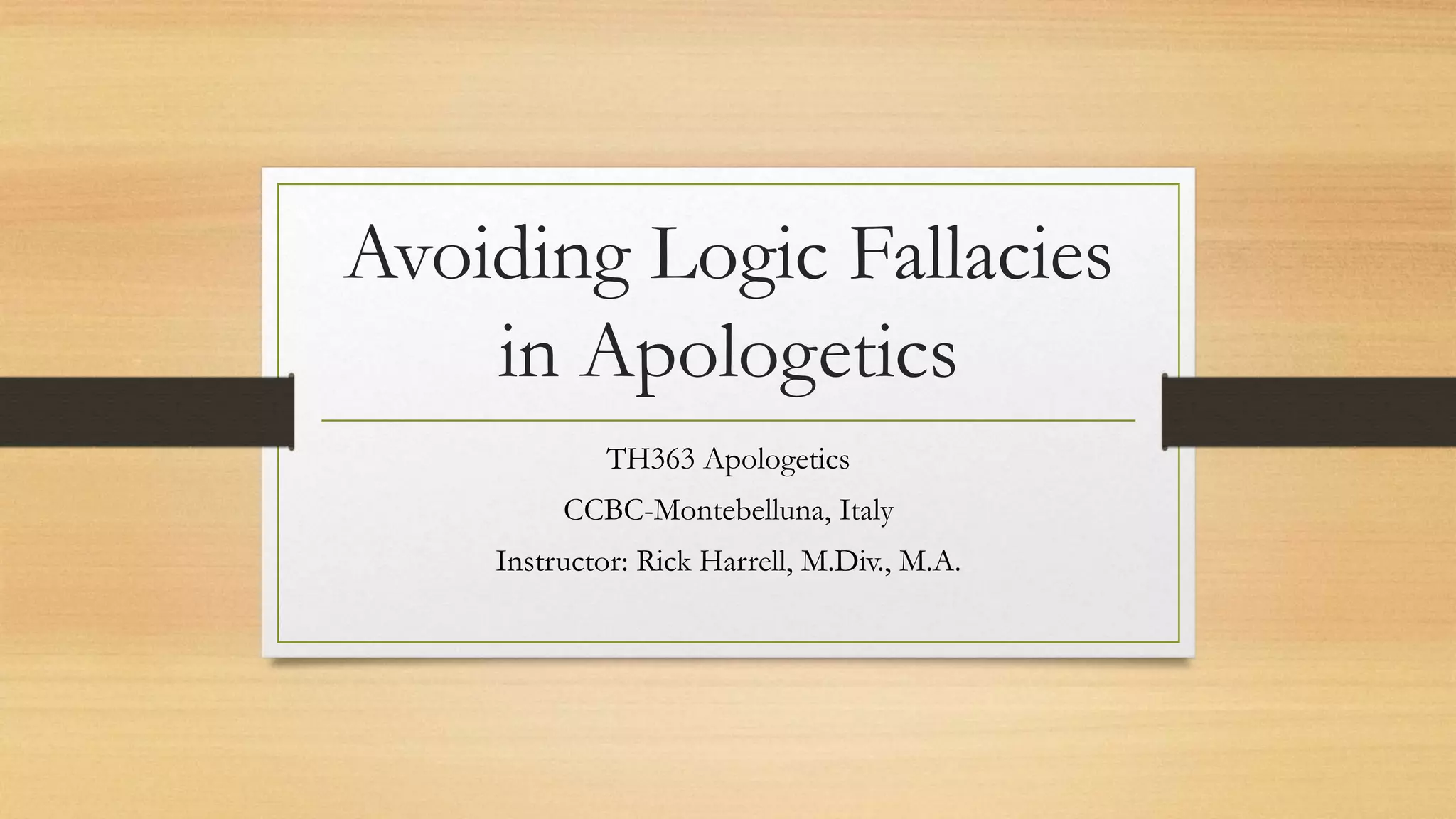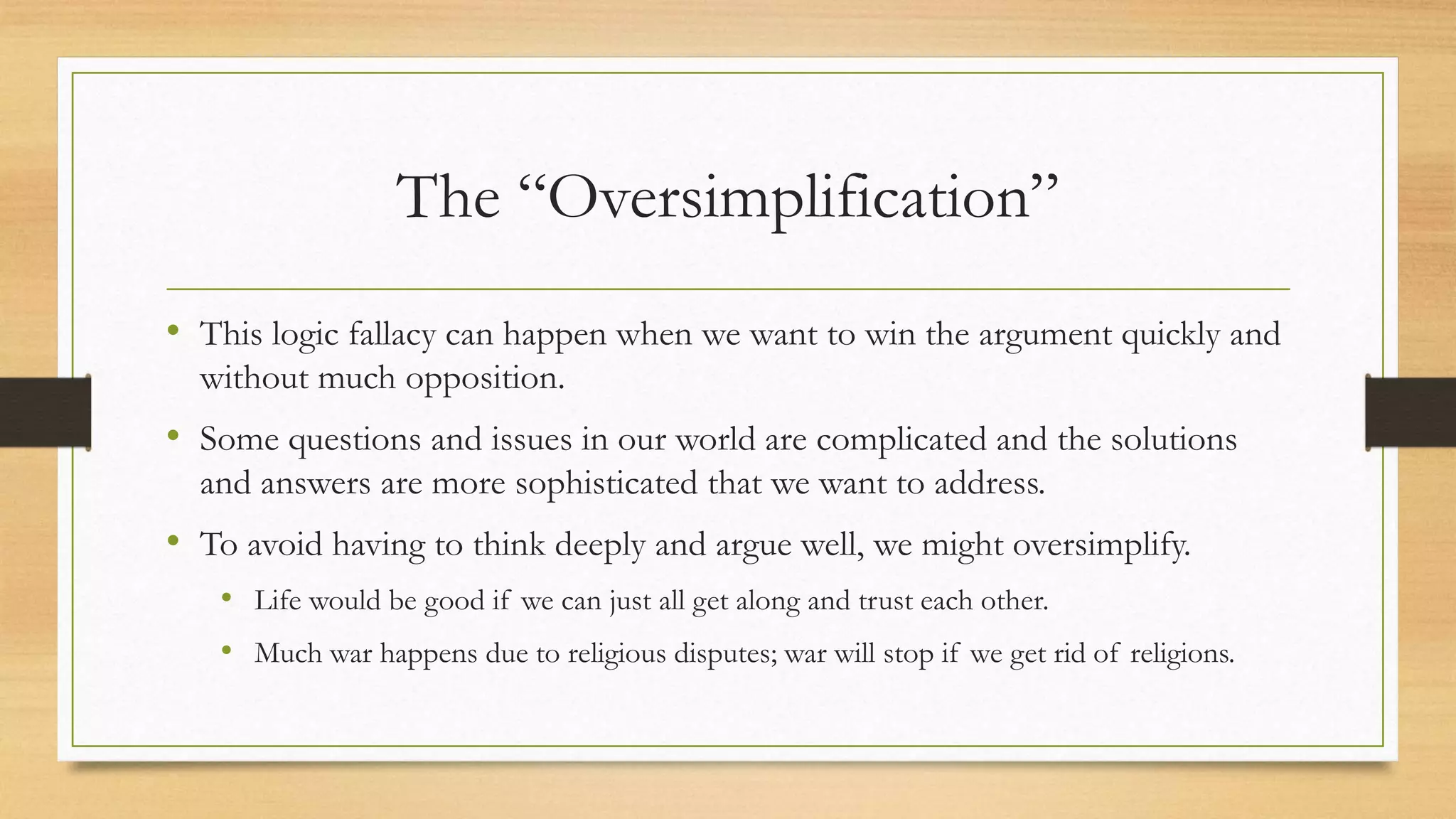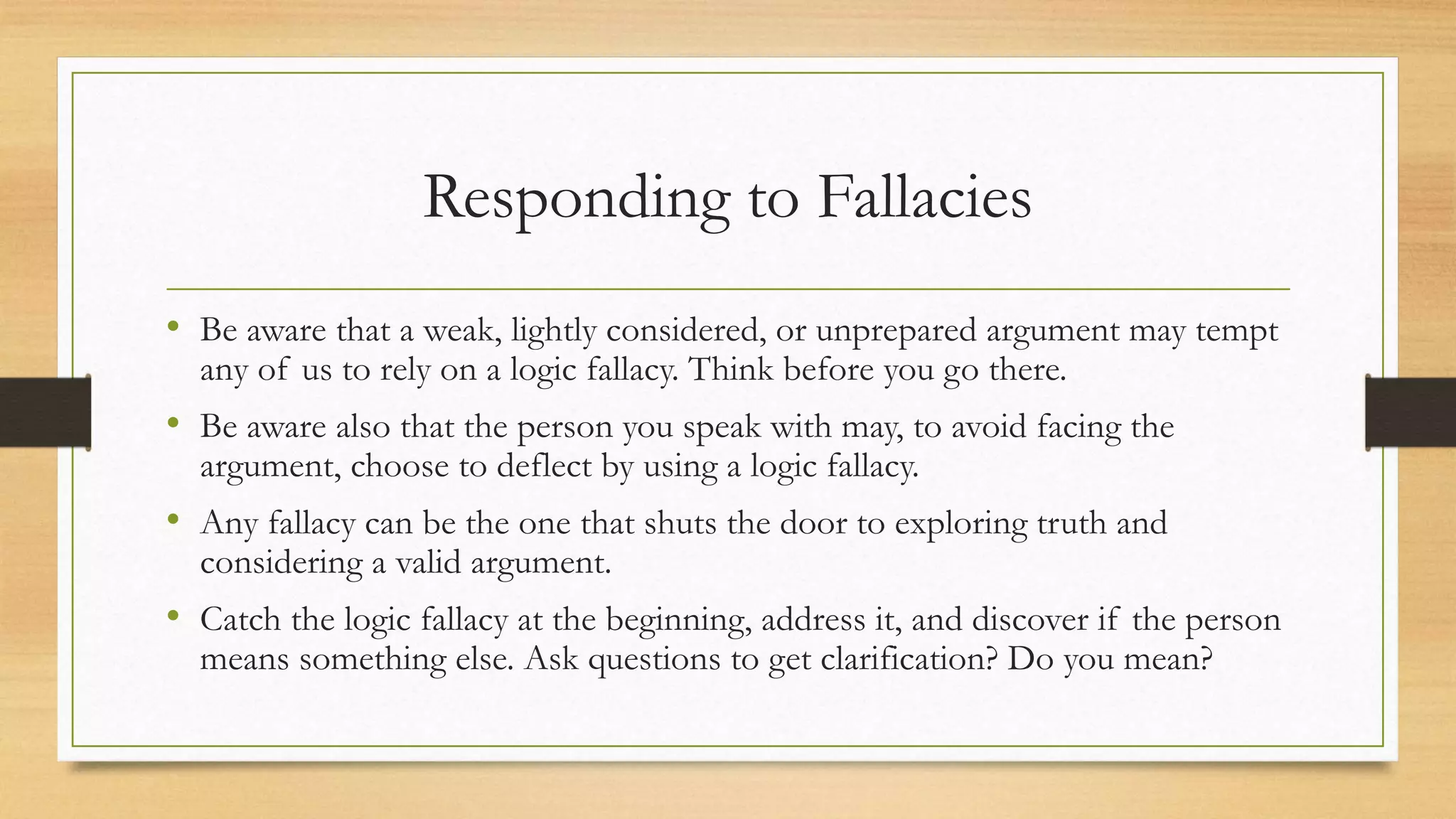This document discusses common logic fallacies to avoid in apologetics discussions. It defines and provides examples of 13 different fallacies: hasty generalization, non-sequitur, begging the question, red herring, ad hominem, ad verecundiam, ad populum, bandwagon, either/or, misplaced concreteness, strawman, weak analogy, and cherry picking. It encourages being aware of logic fallacies and responding by addressing the fallacy directly to get the discussion back on track.
















